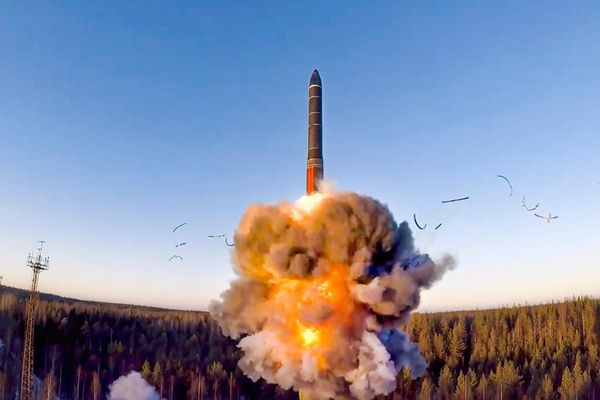
An Australian military whistleblower who leaked classified material detailing alleged war crimes committed by special forces soldiers has pleaded guilty to stealing and sharing secret information.
David McBride gave a trove of military documents to journalists at the Australian Broadcasting Corporation (ABC) because, prosecutors said, he was concerned about what he believed was the “over-investigation” of troops over alleged war crimes.
McBride, a former lawyer in the Australian army, said he felt a moral duty to speak out after attempts to raise his concerns within the military were ignored.
His disclosures asserted that Australian special forces troops were being hamstrung in Afghanistan by restrictive rules of engagement issued by senior officers under political pressure.
The information he provided was the basis for a series of 2017 ABC reports, the Afghan Files, which alleged widespread malfeasance by Australian special forces troops in Afghanistan, including the commission of multiple war crimes.
Oxford-educated McBride, also a former British army major, originally intended to contest five charges at trial, and attempted to argue that his role in the military, and the oath he had sworn, established a duty for him to act in the public interest.
His lawyers said that duty to the public interest overrode any duty to comply with general orders against disclosing military information.
After the court ruled against the admissibility of his arguments and of documents on which he sought to rely, McBride pleaded guilty to three charges. He is expected to be sentenced in the new year and could face imprisonment.
On Friday afternoon at the Australian Capital Territory supreme court in Canberra, Justice David Mossop upheld the government’s claim that certain documents, if released, had the potential to jeopardise “the security and defence of Australia” and could not be used.
McBride’s lawyer, Mark Davis, said the ruling was a “fatal blow” to his case and said his legal team would investigate an appeal.
McBride told reporters outside court: “I stand tall, and I believe I did my duty. I see this as the beginning of a better Australia.”
Standing beside him, his ex-wife Sarah said it had been a long and difficult battle for their family, especially their two daughters. “I’m not giving up hope. He’s done the right thing – I’ve said that from the beginning,” she said. “Truth and justice will prevail and I’m incredibly proud of him, as are his two girls. Please don’t give up on him now.”
McBride’s case has attracted intense public and political interest. After several unsuccessful attempts to convince Australia’s attorney general, Mark Dreyfus, to intervene to discontinue the prosecution – as Dreyfus has done on other whistleblower cases – McBride sought to argue that he had a duty to leak the documents because their public disclosure was in the public interest.
After McBride’s guilty plea, the Greens senator David Shoebridge reiterated calls on Dreyfus to intervene and to pardon McBride after sentencing.
“The … government has now gotten its pound of flesh from David McBride,” Shoebridge said. “What possible benefit is there from taking steps and trying to put him in jail? I again call on the attorney general to intervene and end this prosecution.”
Kieran Pender, a senior lawyer at the Human Rights Law Centre in Australia, said there was no public interest in jailing whistleblowers. “This development must be a warning sign to the government that reform to federal whistleblowing law and the establishment of a whistleblower protection authority is urgent and long overdue,” he said.
Allegations that special forces troops committed war crimes remain an acutely sensitive issue in Australia. A four-year inquiry by the inspector general of the Australian Defence Force, completed in 2020, found “credible information” of 39 murders of civilians and prisoners by 25 members of the Australian special forces in Afghanistan, described the killings as a “disgraceful and a profound betrayal” of the Australian military, and said they could not be attributed to the “fog of war”.
One former trooper, Oliver Schulz, has been charged with the war crime of murder, over allegations he shot an unarmed villager in southern Afghanistan. His case is before a court in New South Wales.
Australia’s most decorated Afghanistan veteran, Ben Roberts-Smith, a recipient of the Victoria Cross, lost a defamation case earlier this year over a series of newspaper reports accusing him of war crimes and that he said portrayed him as having “disgraced his country”.
After a year-long trial, a judge found that the three newspapers had proved to the civil standard of the balance of probabilities that Roberts-Smith was complicit in the murder of four Afghan civilians, including kicking a handcuffed, unarmed prisoner off a cliff and ordering a subordinate to shoot him dead. Roberts-Smith is appealing against that judgment.
Roberts-Smith has not been criminally charged but remains under investigation by the government’s Office of the Special Investigator, established to investigate war crimes allegations against Australians. That body is investigating more than 40 allegations.







